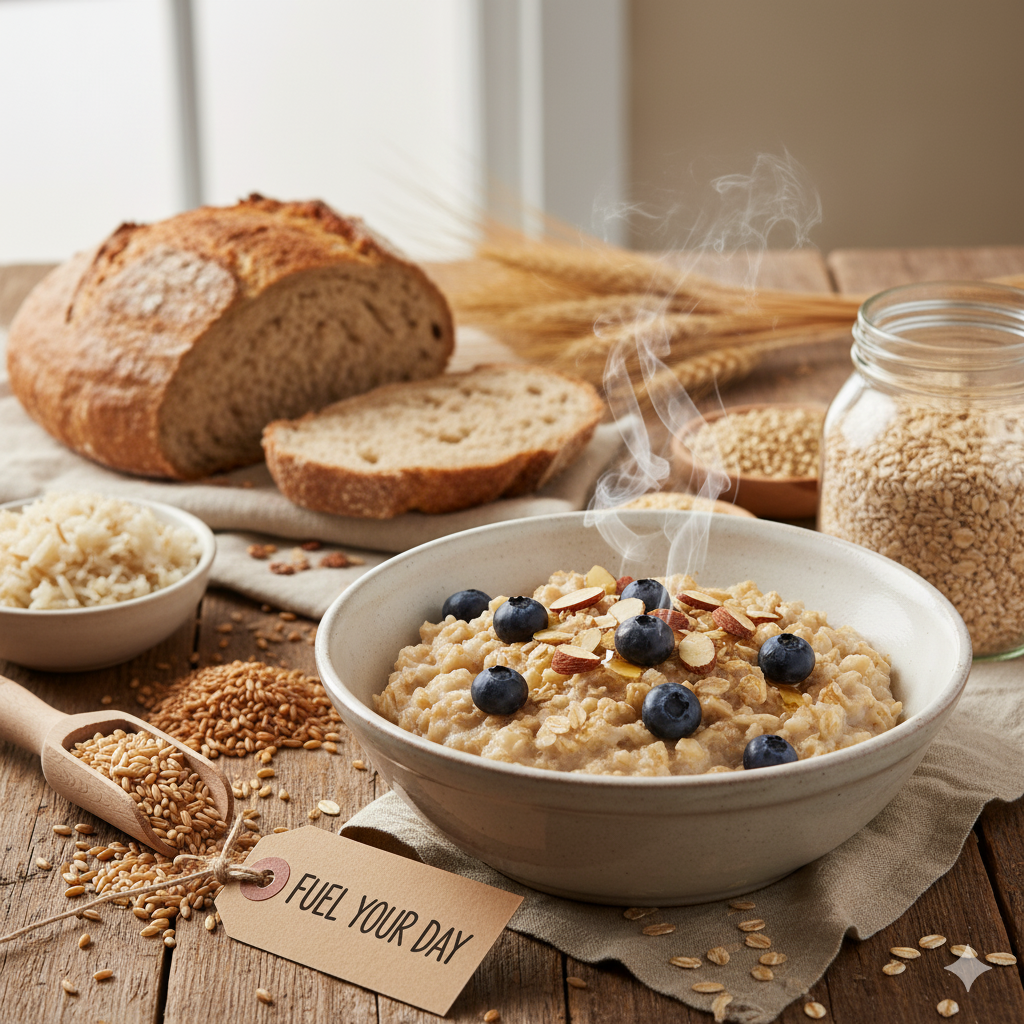
Due to the unfair demonization of grains in the complex world of modern diet, many people unintentionally eliminate a major source of consistent energy. The distinction is important, though, because the emphasis should be on selecting whole grains over refined ones rather than completely avoiding them. The real powerhouses are whole grains, which provide a complex, consistent fuel supply that supports digestion, energy, and long-term health in a manner that processed meals just cannot. One of the simplest and most effective nutritional changes you can make for long-term health is to switch to whole grains.
The full structure of whole grains is what gives them their enormous advantages. Three essential components are retained in a whole grain kernel: the bran (the outer layer rich in fiber), the germ (the core full of nutrients), and the endosperm (the starchy middle). The bran and germ have been removed during processing from refined grains, like white rice or white flour, leaving only the starchy endosperm. By doing this, the majority of the grain’s fiber and vital vitamins are effectively removed. Because it slows down the pace at which the grain breaks down into glucose, the fiber in whole grains is especially significant because it avoids the sudden highs in energy that simple carbohydrates cause and the accompanying falls.
You’re providing your body with a long-burning fuel source when you feed it entire grains like oats, brown rice, whole-wheat bread, or even unrefined corn. Due to their complexity, these foods deliver energy into your bloodstream gradually and steadily. Your blood sugar stays steady thanks to this prolonged release, which improves focus, stabilizes moods, and gives you long-lasting energy throughout the workday. Additionally, by facilitating food’s easy passage through the digestive tract, the high fiber level helps avoid problems like constipation.
Switching isn’t as hard as you would imagine, but it does need careful shopping. Examine the ingredient list for the phrase “whole” (such as “whole wheat flour,” “whole corn,” or “whole oats”) as the first ingredient, ignoring the promises on the front of the package. Choose high-fiber cereals, swap up your white rice for brown rice, and have a bowl of whole-grain oatmeal instead of bread in the morning. Making these nutrient-dense foods a regular priority will not only help you eat more wisely, but it will also build a foundation of health that will keep your energy and attention high for years to come.
